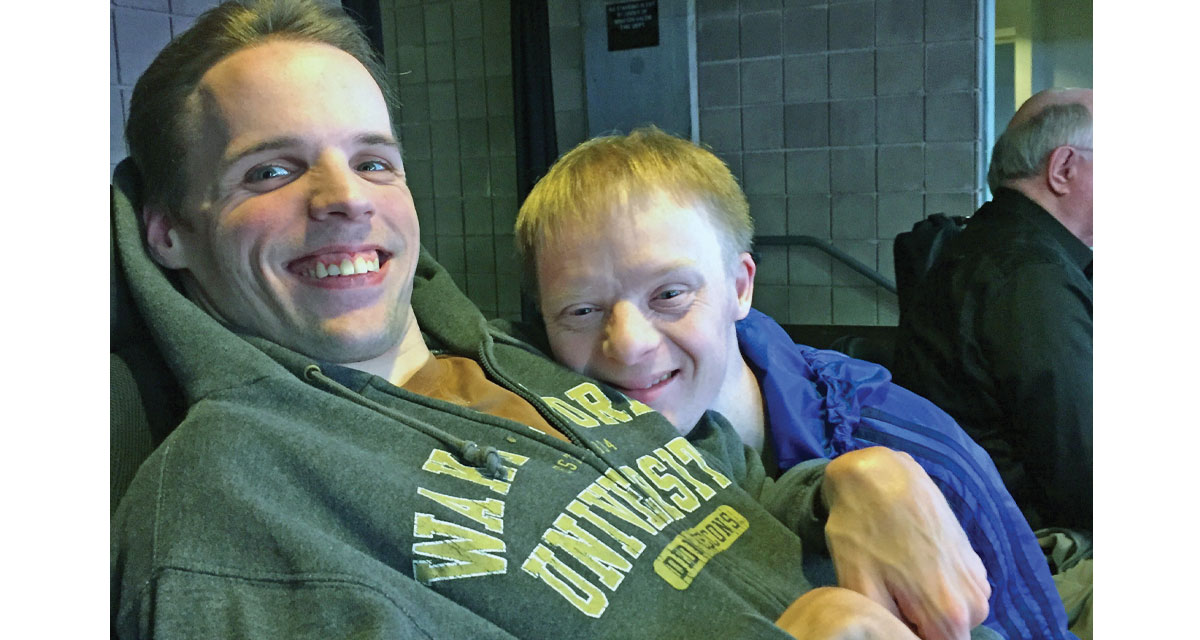BY BILL DONOHUE
Three years ago, an organization was formed with the hashtag, “2Long2Wait!” It marked the decades that many have waited for disability services. The Registry of Unmet Needs (RUN) was created by the North Carolina legislature to log those seeking Home and Community Based services for Intellectual and Developmental Disabilities (I/DD). The number of North Carolina citizens waiting exceeds 15,000 and is rapidly growing.
The stalled wait “is a can being kicked down the road, year after year,” says Deborah Woolard and Sarah Potter, parent advocates whose sons know the challenge better than most.
“Moms know this fight, and we are smart to draft behind them,” said Bill Donohue, Woolard’s husband and a shared founder of their North Carolina Waiver Action Team. “Real change in services for our children always seems to emerge at kitchen tables where the mothers’ networks are the real engines and passion for movement.”
Mandated by federal law, the HBCS services are designed to keep citizens from institutions, create viable work opportunities and protect them from community isolation. North Carolina is sadly behind the nation in all regards.
Forsyth County, however, is about to see some movement. Partners, the new Managed Care Organization replacing Cardinal Innovations, recently announced new Medicaid Waivers allocations. Supported by local leadership from Senator Joyce Krawiec, 1,000 service “slots” for North Carolina and 34 to Forsyth County are being awarded, ending a five-year county drought. “We are thrilled that hope is arriving for not only 34 individuals and their families, but the other 750 in our county who wait behind them,” said Woolard.
Her son, Jeremy Donohue, was one of the lucky ones, signing up for the waiver before the turn of the century. He’s been able to demonstrate the power of the waiver and HBCS services, enrolling in college, living and working in the community, and embracing recreation, worship and services largely unavailable to most with I/DD. A huge boost for someone with a measured IQ under 50.
Matt Potter, already has his college degree from Wake Forest University, but after a 13-year wait, yearns for the same opportunity – and dignity – of the service array. With cerebral palsy, he needs transportation, housing support and a host of other services provided by the waiver to fully express his potential, but is among the 750 in Forsyth County who wait for the legislature to match by 1/3 a federal allocation of 2/3. The average individual award is approximately $55,000; compared to institutional costs three and four times that amount.
“My parents and their natural supports will not always be here for me,” says Matt, “and the wait for all of us is so far behind most states who more than recognize the need.”
Sarah and Deborah have taken the lead to make a difference beyond the county borders with their website (ncwaiveractionteam.com). Following close behind are shared leadership teams from the North Carolina Council for Developmental Disability (NCCDD) and the Leadership Alliance for Neuro-Disability (LAND). Partnering with other statewide agencies, their collective voices grow the reality that change is in the air.
Their work is gaining traction. From their kitchen table networks and website, communities are engaging and policymakers are seeing the data and stories that demonstrate family need and economic impact. Thanks to recent court decisions and these growing voices, light is again shining on the 1998 Olmsted Act requiring North Carolina to de-institutionalize its restrictive facilities for those with disabilities. The legislative history of can-kicking is in full view as the burgeoning wait list “runs” the opposite direction.
The new “slots” are a boost for the county, but the “can” needs more than a kick if it is to keep up with the desperate need.


















